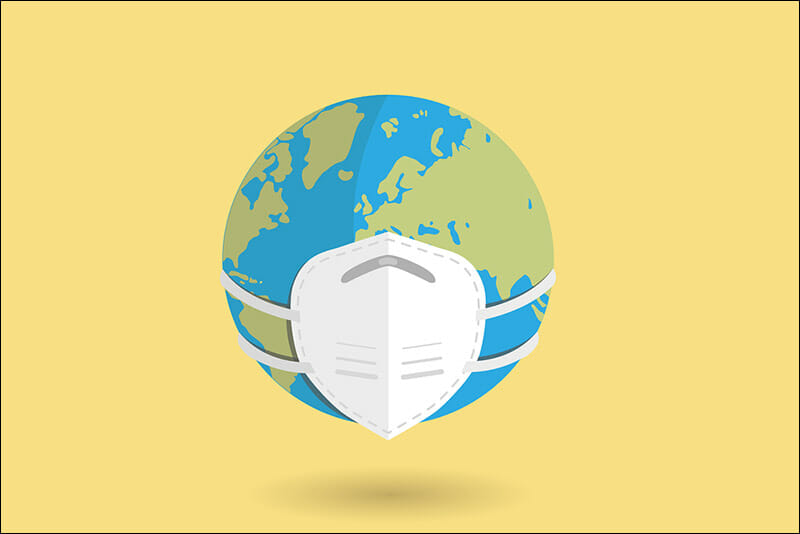Quarantine Fatigue: 6 Ways to Protect Mental Health During the COVID-19 Pandemic
Quarantine Fatigue: 6 Ways to Protect Mental Health During the COVID-19 Pandemic
While the United States continues to struggle with the spread of the Coronavirus (COVID-19), people in every single state face a fear of the unknown and a stark change in how we go about our daily lives in a way that keeps us all safe.
This type of social isolation, only going out for necessary errands and keeping a distance from others, can be incredibly stressful. This is particularly true for people in recovery from substance use addiction or those living with mental health issues.
 According to the Centers for Disease Control and Prevention (CDC), the spread of an infectious disease can lead to some or all of the following issues:
According to the Centers for Disease Control and Prevention (CDC), the spread of an infectious disease can lead to some or all of the following issues:


 According to the Centers for Disease Control and Prevention (CDC), the spread of an infectious disease can lead to some or all of the following issues:
According to the Centers for Disease Control and Prevention (CDC), the spread of an infectious disease can lead to some or all of the following issues:
- Fear and worry about our health and the health of loved ones
- Anxiety about our financial situation or employment
- Lack of support services people depend on
- Disruptions in sleeping and eating patterns
- Problems concentrating
- Worries about existing health issues
- Worsening mental health conditions
- An increase in the use of alcohol, tobacco, marijuana, and other substances
We’re Not Alone
With news stories and social media posts showing large gatherings of people seemingly enjoying themselves at parties, parks or on beaches, it’s easy to feel like we’re the only ones in the world taking this once-in-a-lifetime pandemic seriously. In truth, though, most Americans have been affected by this pandemic in one way or another. Many people have lost their jobs. Schools and education has been disrupted. “Essential workers” deal with the ongoing threat of infection. Single parents struggle to maintain a work-at-home and life balance. The list goes on, but it would not be complete without mention of those who have gotten this disease, and those who tragically have lost their lives from it. Amidst this frightening public health crisis, it’s important to remember that others are struggling too and that it is our responsibility to ourselves and others to take care of our mental health during this challenging time.
Here are 6 Ways to Protect Your Mental Health During Quarantine
1. Create and Maintain a Regular Quarantine Routine
Knowing what comes next, simply put, helps to reduce stress. Instead of staying up until the wee hours of the morning watching TV, try to keep a regular sleep and wake schedule, while getting 7 to 9 hours of restful slumber each night. If you’re working from home, structure your time in a way that’s similar to a normal workday. Posting a daily schedule, especially for children, can help alleviate boredom related frustration. Of course this is easier said than done, and it will take some extra effort, but sticking to a routine, including one with some built in “free time,” can help you move through the day with less anxiety about what comes next.2. Maintain a Well Balanced, Low-Glycemic Diet
When we’re bored, it’s all too easy to reach for the chips and dip or maybe a sleeve of sugary cookies. Too much of that, though, will leave of us feeling sluggish and dull. Research also suggests that a poor diet can actually trigger cravings for alcohol and drugs because junk food interacts with the same areas of the brain as these substances. A diet rich in fruits, vegetables, nuts, seeds, lean proteins and fish helps us maintain healthy levels of dopamine, a chemical in the brain associated with mood and feelings of pleasure and contentment. This is especially important for people who are newly sober as well as those who have a longer time in recovery from addiction. Related: Benefits of Quitting Sugar: Is Sugar as Addictive as Drugs or Alcohol?3. Exercise Regularly, Outdoors if Possible
The mental health benefits of exercise are well established. This can be at whatever pace most suits you, from a daily 45-minute brisk walk, to a more intense cardio-based interval workout a few times a week. There are even numerous free yoga sessions that people post online to help keep your body flexible and prevent tension-knots from developing in the muscles. Depending on where you live, gyms may or may not be open, but donning a mask and getting some exercise outside, whether it’s a walk, a bike ride, or a hike, in an area that’s not too crowded is considered a safe and healthy activity.




